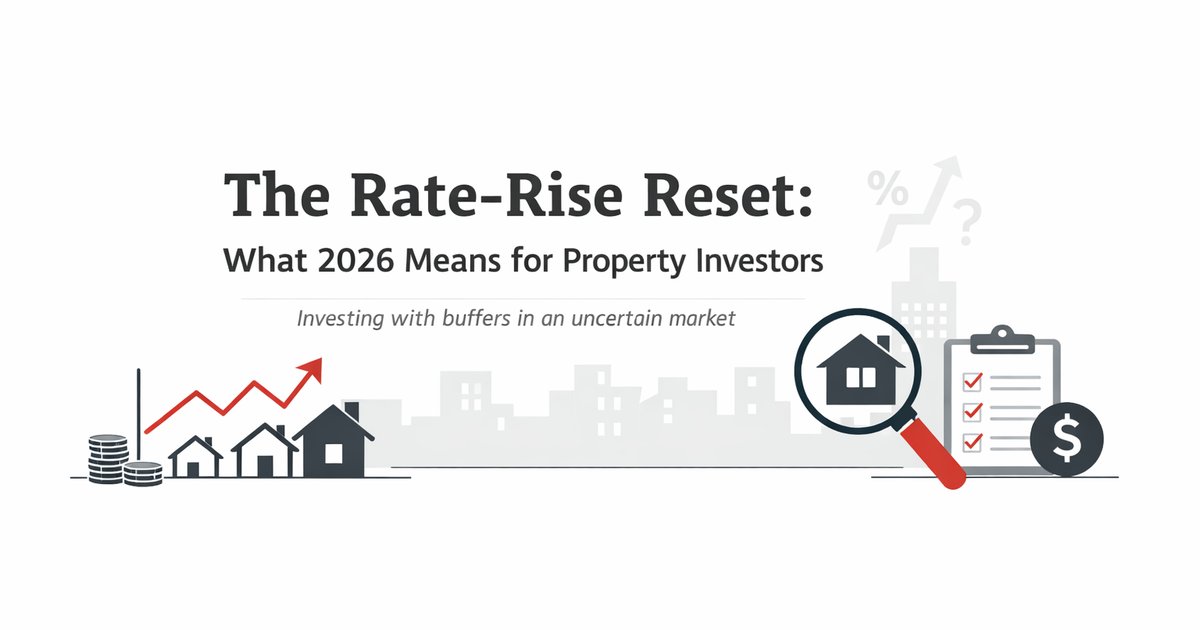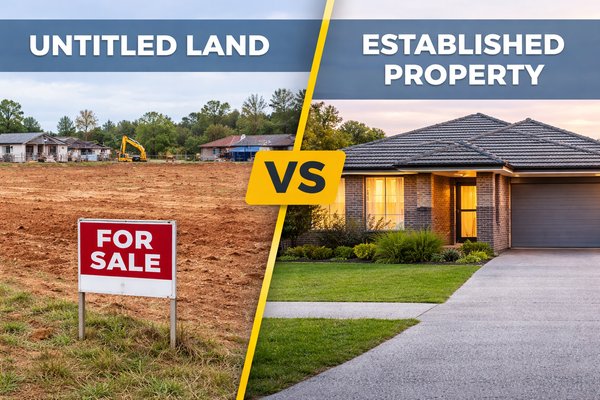Most Australians only start thinking seriously about superannuation when it’s almost too late. Years go by with little attention paid, and before long, many find themselves racing to catch up on retirement savings.
But there’s another path; one that puts your money to work now and builds long-term wealth. By using your super to invest in property, you may be able to take greater control of your financial future, create a stable income stream for retirement, and grow your nest egg more effectively than through a traditional super fund.
With the right advice and property strategy, this approach can work well. And that’s where AbodeFinder comes in. We help Australians explore how to invest super in property through a self-managed super fund (SMSF), making it easier to identify strong investment opportunities, avoid common traps, and stay compliant.
If you’re looking for smarter ways to use your super, and you believe property should be part of your retirement plan, this guide will show you what’s possible.
Why Superannuation Alone May Not Be Enough
Superannuation is meant to support Australians through retirement, yet for many, the balance simply won’t stretch far enough. Whether due to career breaks, low employer contributions, or a late start to saving, underfunded super accounts are a growing concern, especially as life expectancy rises.
Adding to the challenge is policy uncertainty. Super rules have changed frequently over the years, affecting contribution caps, tax treatment, and fund access. For everyday Australians trying to plan long-term, these shifting rules create doubt and hesitation.
That’s where property investment within super can make a real difference. Through a self-managed super fund (SMSF), you can use super to buy an investment property—an asset with growth potential, income generation, and long-term stability. Rather than relying solely on market-based super fund returns, this gives you the ability to build wealth through a physical asset that aligns with your retirement goals.
For investors looking to get more from their super, using property as part of their strategy can offer more control, predictability, and performance. AbodeFinder helps make that path clearer.
Three Ways Australians Hold Super
There are three main ways Australians manage their superannuation. Each comes with its own level of control, flexibility, and potential to support property investment.
1. Industry Super Funds
Industry super funds are the default option for most employees. They’re commonly set up when you start a new job and are designed to operate on a low-fee, not-for-profit model.
While these funds are easy to set and forget, they offer limited investment choice. You can generally select a risk profile (e.g. balanced or high growth), but you can’t invest directly in assets like residential property. Some industry funds have also underperformed in recent years when compared with more flexible strategies.
2. Retail Super Funds
Retail super funds are offered by financial institutions and provide a wider range of investment options than industry funds. They’re more flexible and allow for some customisation in how your money is invested.
However, these funds still don’t allow you to directly buy property with your super. You may be able to invest in property-related shares or funds, but if your goal is direct property ownership within super, this structure won’t support that strategy.
3. Self-Managed Super Funds (SMSFs)
An SMSF gives you full control over where and how your super is invested. This includes the ability to use your super to invest in residential or commercial property, provided it meets compliance conditions.
This control is one of the main reasons SMSFs are growing in popularity, especially for investors who want to align their retirement savings with property growth. With the right support, SMSFs allow Australians to build a property portfolio inside super, benefiting from long-term capital gains and rental income within a tax-advantaged structure.
AbodeFinder works with clients and their advisers to help identify suitable investment properties for SMSFs, making the process simpler and more effective.
Why Consider Property Investment via SMSF?
For many Australians, using an SMSF to invest in property is a smart way to take control of their retirement strategy. Unlike traditional super funds, an SMSF lets you choose where your money goes, including into direct property.
Here’s why more investors are choosing to include property in their super:
-
Buy residential or commercial property
Through an SMSF, you can purchase a wide range of properties that meet the fund’s investment strategy. Whether it’s a residential home or a commercial asset, the choice is yours, as long as it’s used for investment purposes and complies with regulations. -
Rental income supports your retirement
All rental income generated by the property goes straight back into your SMSF. This helps grow your fund balance over time and supports your retirement income needs. -
Grow your super tax-effectively
Property growth within super is subject to concessional tax treatment, often lower than what you’d pay in your personal name. This makes SMSF property investment a powerful way to build long-term wealth with better after-tax outcomes. -
Stay in control of your investment future
Instead of relying on external fund managers, SMSFs give you the flexibility to align your property strategy with your personal goals. You decide what to buy, where to buy, and how to manage the asset.
At AbodeFinder, we work with buyers who are looking to use their super to build a property portfolio. From suburb selection to sourcing high-performing properties and working with trusted professionals, our team makes SMSF property investing simpler and more strategic.
Rules and Conditions You Need to Know
Investing in property through an SMSF opens up new opportunities, but there are rules that must be followed to stay compliant with Australian superannuation laws. These rules exist to protect your retirement savings and ensure the fund is used for its intended purpose.
The Sole Purpose Test
Your SMSF must be set up and operated for the sole purpose of providing retirement benefits. Any investment, including property, needs to serve that goal. This means you can’t use the property for personal reasons or as a convenience for family members.
No Personal Use or Family Rental
If your SMSF owns a residential property, you and your relatives are not allowed to live in it or rent it. The property must be purely for investment. Even if market rent is paid, leasing it to a family member is still against the rules.
The Property Must Be at Arm’s Length
All transactions involving the property must be conducted on an arm’s length basis. That means market rates must apply, and there can be no special deals or relationships influencing the terms. Everything must be documented and independently assessed to avoid compliance issues.
Using a Limited Recourse Borrowing Arrangement (LRBA)
If your SMSF borrows money to purchase the property, it must be done through a limited recourse borrowing arrangement. This protects the other assets in the fund; if the property fails to perform or repayments can’t be met, the lender can only access that one asset, not the entire SMSF portfolio.
Understanding these rules is key to making property inside super work for you. At AbodeFinder, we work with licensed professionals who can guide you through the setup, borrowing structure, and property search to help ensure your fund stays compliant and on track.
Common Mistakes to Avoid
While property investment through super can offer strong long-term benefits, there are common missteps that can delay progress or reduce returns. Knowing what to watch for can help you stay on track.
Waiting Too Long to Engage with Super
Many people only start paying attention to superannuation in their 40s or 50s, missing out on the power of early contributions and compound growth. The earlier you start reviewing your options, the more control you’ll have over your retirement outcome, especially if you’re aiming to invest in property through an SMSF.
Holding Multiple Underperforming Funds
It’s easy to collect multiple super accounts from different jobs, especially in your early career. But managing several accounts means paying multiple sets of fees, often on underperforming funds. Consolidating super accounts can reduce costs and give you a clearer view of your total balance, which is important when planning an SMSF property strategy.
Not Tailoring Asset Mix to Your Life Stage
Super funds often default you into a balanced or conservative option. But your investment strategy should change over time. Younger investors may benefit from higher-growth options, while older investors might shift towards income-focused assets. Getting the mix right is essential to make the most of your contributions and long-term growth.
Failing to Get Advice Before Setting Up an SMSF
Setting up an SMSF without advice can lead to poor compliance, unexpected costs, and unsuitable property choices. While SMSFs offer greater control, they also come with responsibilities. Working with professionals from the start, including a property adviser, accountant, and SMSF expert, can save you time, money, and stress.
At AbodeFinder, we support clients from the beginning of their SMSF journey by helping them choose suitable properties, understand borrowing rules, and connect with trusted service providers.
How to Get Started with Property Investment via SMSF
If you're thinking about using your super to invest in property, the first step is understanding where you stand and what’s involved. Getting started can feel complex, but with the right support, it becomes a clear and achievable strategy.
Know Your Super Balance and Fund Options
Begin by checking your current superannuation balance. If you have multiple accounts, consider consolidating them. This gives you a clearer view of your financial position and helps determine whether an SMSF is a realistic next step.
Decide If an SMSF Is Right for You
Running a self-managed super fund comes with responsibilities. You’ll need to stay compliant, manage the paperwork, and ensure the fund’s investments serve your retirement goals. For investors who want control and are interested in buying property with super, SMSFs offer a unique opportunity, but they’re not suited to everyone.
Work With the Right Experts
Setting up an SMSF to invest in property involves several moving parts. Working with professionals ensures everything is structured properly and you stay on the right track.
-
Set up the fund
A licensed SMSF provider or accountant can help register your fund, create the trust deed, and ensure it meets ATO requirements. -
Select the right property
At AbodeFinder, we help investors identify properties that meet SMSF rules and deliver strong long-term performance. This includes analysing yield, growth prospects, and tenant demand. -
Structure the purchase correctly
If borrowing is involved, you’ll need a limited recourse borrowing arrangement (LRBA). Legal and financial experts can make sure the structure complies with all rules, so your fund remains in good standing.
When done right, property investment through super is a practical strategy for long-term wealth creation, and AbodeFinder is here to help you make it work from day one.
How AbodeFinder Supports Your SMSF Property Journey
At AbodeFinder, we work with Australians who want to take control of their retirement strategy by investing in property through super. Our team is here to simplify the process, reduce risk, and help you build a smarter, more secure future.
Property Strategy Aligned with Your Super Goals
We don’t offer one-size-fits-all advice. We help you find high-performing properties that match your fund size, return expectations, and long-term retirement plans, whether you're seeking cash flow, capital growth, or a balance of both.
Suburb Selection Driven by Data
Choosing the right suburb can make or break a property investment. We use advanced data analysis and forecasting models to identify suburbs with strong growth potential, low vacancy rates, and solid rental demand, all essential factors for a successful SMSF property.
Connect with Trusted Professionals
We understand that SMSF property investing involves more than just picking the right home. That’s why we connect you with experienced brokers, legal advisers, and property managers who understand the compliance and structural requirements of buying through super.
End-to-End Support for Better Retirement Outcomes
From your first enquiry to post-purchase support, we guide you every step of the way. Whether you're starting your SMSF journey or looking to expand your property portfolio, AbodeFinder provides the tools and guidance to help you make confident, informed decisions.
If you're ready to explore how property can work inside your super, AbodeFinder is your trusted partner.
Conclusion
Superannuation doesn’t need to sit idle in a default fund.
By setting up a self-managed super fund, you can take control and use your super to invest in property, growing your wealth with an asset you understand and trust.
With the right strategy, expert support, and carefully chosen properties, SMSF property investment can help you build long-term security and retirement income.
AbodeFinder is here to support your journey from start to finish with data-backed property insights, suburb selection, and trusted connections to help you make confident decisions inside your super.
Ready to explore your options? Start today and take your retirement into your own hands.
















